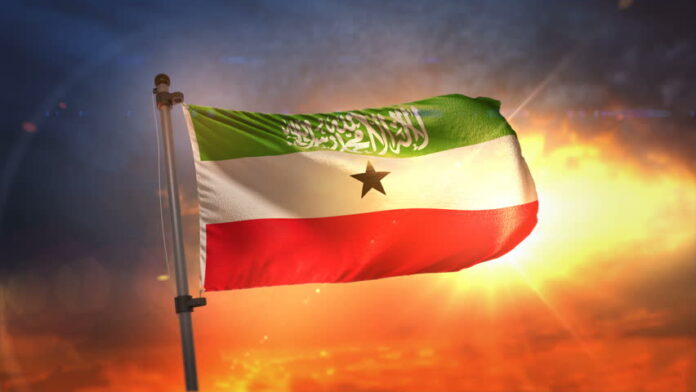By: Abdifatah Saeed Jama
In a world where statehood is often defined by recognition, Somaliland stands as a testament to the complexities of international law and national identity. After reclaiming its sovereignty in 1991, Somaliland has navigated three decades of peace and democracy yet remains trapped in a limbo of unrecognized statehood. The question is no longer whether Somaliland deserves recognition, but how long the international community will ignore a reality that demands acknowledgment.
A Union That Was Never Legal
One of the most overlooked facts in the debate over Somaliland’s sovereignty is that the 1960 union with Somalia was never legally ratified by both parties.
On June 26, 1960, Somaliland became independent from Britain and was recognized by 35 countries, including the United Kingdom, United States, and Egypt. Five days later, the newly independent Somalia (former Italian Somaliland) gained independence, and the two entities attempted to form a union. However, this process lacked a legal foundation:
-
Somaliland’s Parliament never ratified the Act of Union, rendering the agreement legally void.
-
The Somali Republic’s government attempted to approve the unification on July 1, 1960, but under international law, a treaty requires consent from both parties.
-
Legal scholars, such as Michael Schoiswohl in Status and (Human Rights) Obligations of Non-Recognized De Facto Regimes in International Law (2004), argue that Somaliland’s withdrawal in 1991 was a dissolution of an unratified union, not a secession.
This legal distinction is crucial. Somaliland is not a breakaway region of Somalia; it is a state reclaiming its pre-union sovereignty. International law does not prevent a country from withdrawing from a union that was never legally binding.
Somaliland Meets All Criteria for Statehood
International recognition often hinges on the Montevideo Convention on the Rights and Duties of States (1933), which outlines four criteria for statehood:
-
A Permanent Population: Somaliland boasts over 4.5 million residents.
-
A Defined Territory: It controls 137,600 km², with recognized colonial-era borders.
-
A Functioning Government: Somaliland has its own government, judiciary, and a constitution adopted in a public referendum in 2001, with 97% approval.
-
The Capacity to Enter Into International Relations: Somaliland has signed agreements with Ethiopia, the UAE, and other nations, and maintains diplomatic offices worldwide.
If these criteria are sufficient for statehood in cases like Kosovo (recognized by over 100 countries) or South Sudan (recognized in 2011), why does Somaliland remain unrecognized?
A Functioning Democracy in a Volatile Region
While Somalia grapples with instability, terrorism, and weak governance, Somaliland has emerged as a stable and democratic nation:
-
Peaceful Elections: Since 2001, Somaliland has held multiple presidential, parliamentary, and local elections, characterized by peaceful transfers of power.
-
Rule of Law: Unlike Somalia, where judicial institutions are frail, Somaliland has a functional legal system that adjudicates disputes fairly.
-
Security and Stability: Somaliland has successfully prevented the spread of Al-Shabaab within its borders, while Somalia remains a battleground for extremist groups.
Even the African Union’s 2005 fact-finding mission concluded that Somaliland’s case is unique and deserves special consideration. The AU, however, has failed to act on its own findings.
Economic Viability and Strategic Importance
The argument that Somaliland lacks the economic capacity to sustain itself is misleading. Somaliland’s economy is built on:
-
The Berbera Port: Managed by DP World, it is becoming a major regional trade hub, reducing Ethiopia’s dependence on Djibouti.
-
Livestock Exports: Somaliland exports millions of livestock annually to the Middle East, particularly Saudi Arabia.
-
Diaspora Investment: The global Somaliland diaspora sends over $1 billion annually in remittances, fueling development.
If Somaliland is a failed state, why are countries like Ethiopia, the UAE, and Turkey engaging in economic and diplomatic partnerships with it?
Geopolitical Stakes in the Horn of Africa
Ignoring Somaliland’s recognition is not just unjust—it is a strategic mistake. The Horn of Africa is a highly contested geopolitical zone, with powers such as:
-
The U.S., seeking stable partners against terrorism.
-
China, expanding its influence through its Djibouti military base.
-
Gulf states, investing heavily in regional ports.
Recognizing Somaliland would provide a stable, democratic partner for security and trade. Ethiopia has already indicated interest in formally recognizing Somaliland, and other regional players must follow.
Time for Regional Leadership
The African Union and IGAD must take the lead in recognizing Somaliland. This is not about rewriting colonial borders; it is about correcting historical mistakes and promoting stability.
Key Steps Forward:
-
African Union Engagement: The AU must re-evaluate its 2005 mission report and consider Somaliland’s unique case.
-
Formal Observer Status: Somaliland should be granted a seat at the African Union and IGAD discussions.
-
Economic and Security Partnerships: African nations should engage with Somaliland as a trade and security partner.








